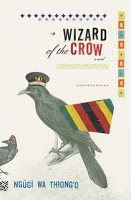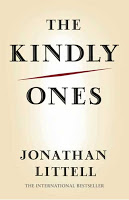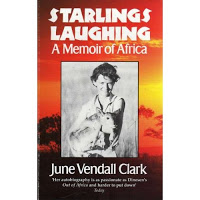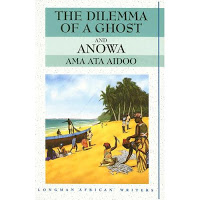
This was a fantastic book. Hilariously, I’ve been studiously avoiding it up till now, when my boyfriend got it out the Library for me randomly. I avoided it because a) I see she has a mother who is a successful author (3 times nominated for the Booker herself). This is always a bad sign, shades of Martin Amis – how did she get published, how (puke) literary is it? and b) It’s all about migrants, and I feared it would be a bit of a politically correct misery memoir. I’m a migrant myself and I don’t really need to read about the misery.
But meanwhile, back at the ranch, much to the delight of my boyfriend, as I rolled my eyes when he brought it home, it’s fabulous. It tells two stories, more or less, one of Sai, who is a teenage orphan girl living in the Himalays with her distant wealthy grandfather, and the second of Biju, who is Sai’s grandfather’s cook’s son, and an illegal immigrant in New York. Sai falls in love with her lower class maths tutor, who abandons her when he gets taken up by the movement for Gurka indepedence, which movement severely threaten Sai’s lifestyle. The demonstrators take land and possessions from the rich, and open Sai’s eyes to the economic world she’s living in. Meanwhile, Biju is scraping by in New York, wondering why so many Indians try and move to the US. He’s making very little money, and feels a host of complicated feelings about what he’s lost in leaving his home and family. Eventually he decides to return to the Himalayas, just as the political unrest means his home area is entirely shut off. He manages to get a ride, only to be robbed of all his belongings, his clothing, and his hard earned savings. He eventually makes it back to his father, barefoot in a borrowed dressing gown.
So what did I so much like about this book? It’s hard to say. First, it dealt with some very complex emotions and ideas in an accessible way. The question of what it means to move, of what it mean to belong, in this globalised world (blah blah blah) are immensely complicated, and as they really effect only a very small proportion of the world’s writers, are very rarely written about with any understanding or intelligence. This thing – of being a new kind of person – a person of more than one culture – is becoming more and more common, but it’s still very new in the literature. There’s kind of a lag. If you are one of these people you usually have to work all this out by yourself, and it’s fun to find a book that’s working on the same project.
Plus, all this heavy stuff is dealt with with a lovely lightness of touch and sense of the absurd. I feel like I would like Kiran Desai if I met her. Read this Guardian interview with her, it’s quite sweet. And makes me feel guilty I wrote her off as a product of nepotism.
There are some awesome bits:
The police are checking the house for evidence:
A thousand deceased spiders lay scattered like dead blossoms on the attic floor, and above them, on the underside of the tin sieve roof, dodging drips, their offspring stared at the police as they did at their own ancestors – with a giant, saucer-sized lack of sympathy.
A hotel manager talking about rich tourists:
“Hah! What money? They are so scared they’ll be taken advantage of because of their wealth, they try and bargain down on the cheapest room . . . And yet, just see.” He showed them a postcard the couple had left for the front desk to post: “Had a great dinner for $.450. We cant believe how cheap this county is!”
When Biju is deciding to return home:
Shouldn’t he return to a life where he might slice his own importance, to where he might relinquish this overrated control over his own destiny and dperhaps be subtracted from its determination altogether? He might even experience that greatest luxury of not noticing himself at all.
Fabulous. Loved it. I read somewhere else recently that the great joy of exile or immigration is that you are set free from fate. It’s interesting to see here he regards having to choose your own path as a curse not a blessing.
A very poor woman cleaning the airport:
Eyes lowered and swatting bare feet with a filthy rag, she introduced some visitor sfor the first time to that potent mixture of intense sympathy and intense annoyance.
A minor character we meet in the airport, an Indian who lives in Omaha:
He knew what his father thought: that immigration, so often presented as a heroic act, could just as easiy be the opposite; that it is was corwardice that led many to America; fear marked the journey, not bravery; a cockroachy desire to scuttle to where you never saw poeverty, not really, never had to suffer a tug to your conscience; where you never heard the demands of servants, beggards, bankrupt relatives and where your generosity would never be openly claimed; where by merely looking after you own wife-child-dog-yard you could feel virtuous. Experience the relief of being an unkown transplant to the locals and hide the perspective granted by journey.
I’m still trying to figure out what the title means.






